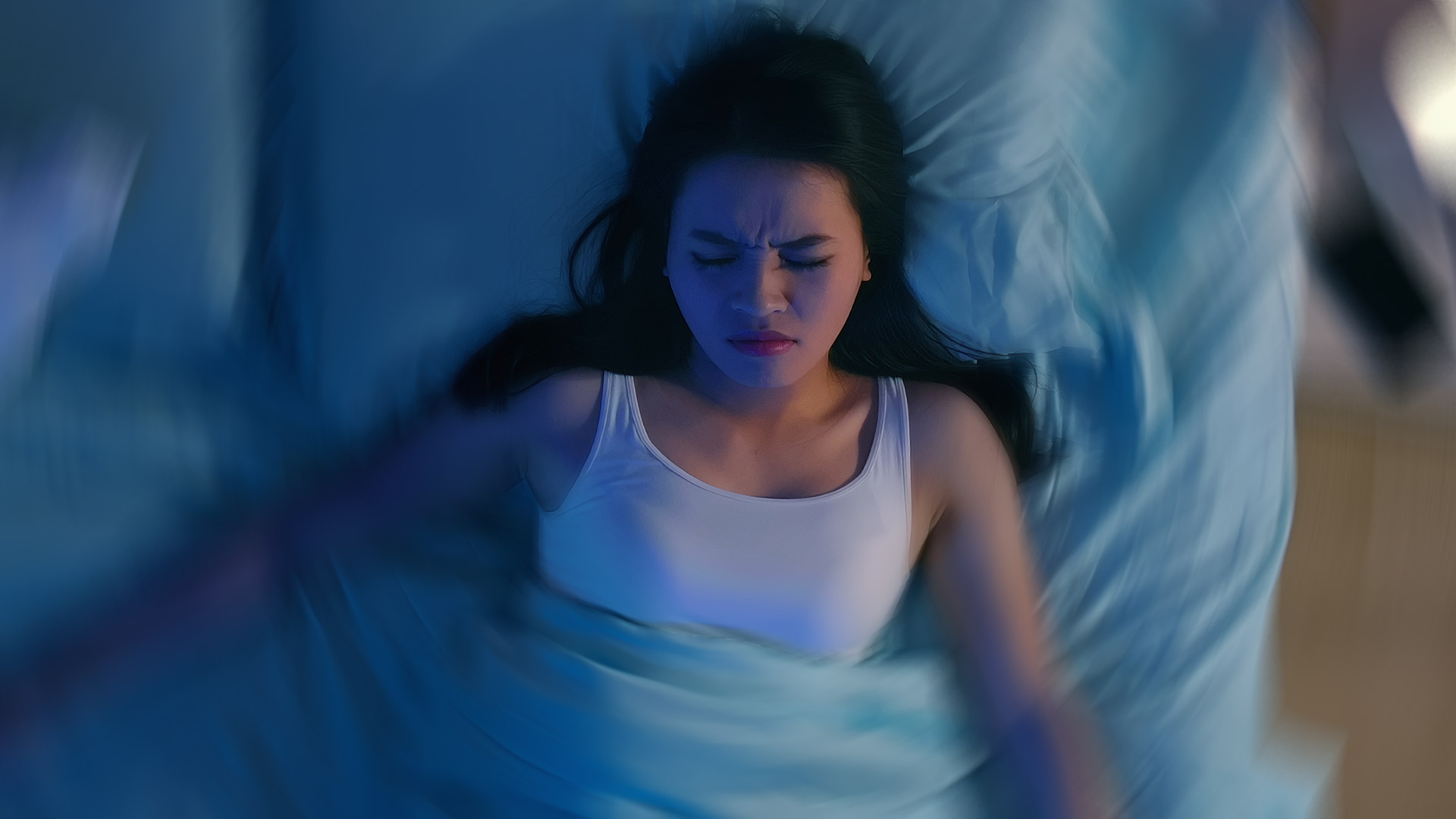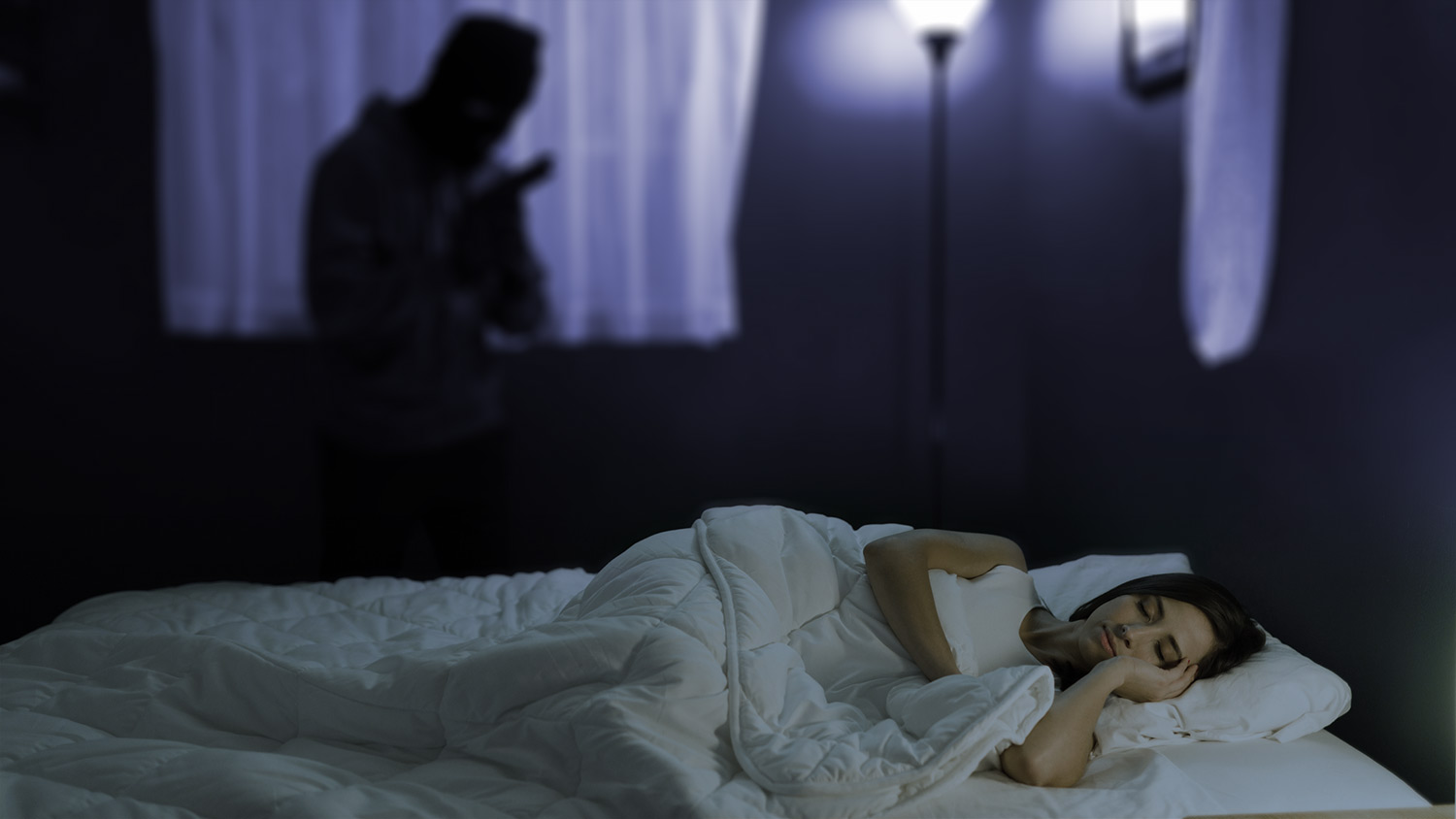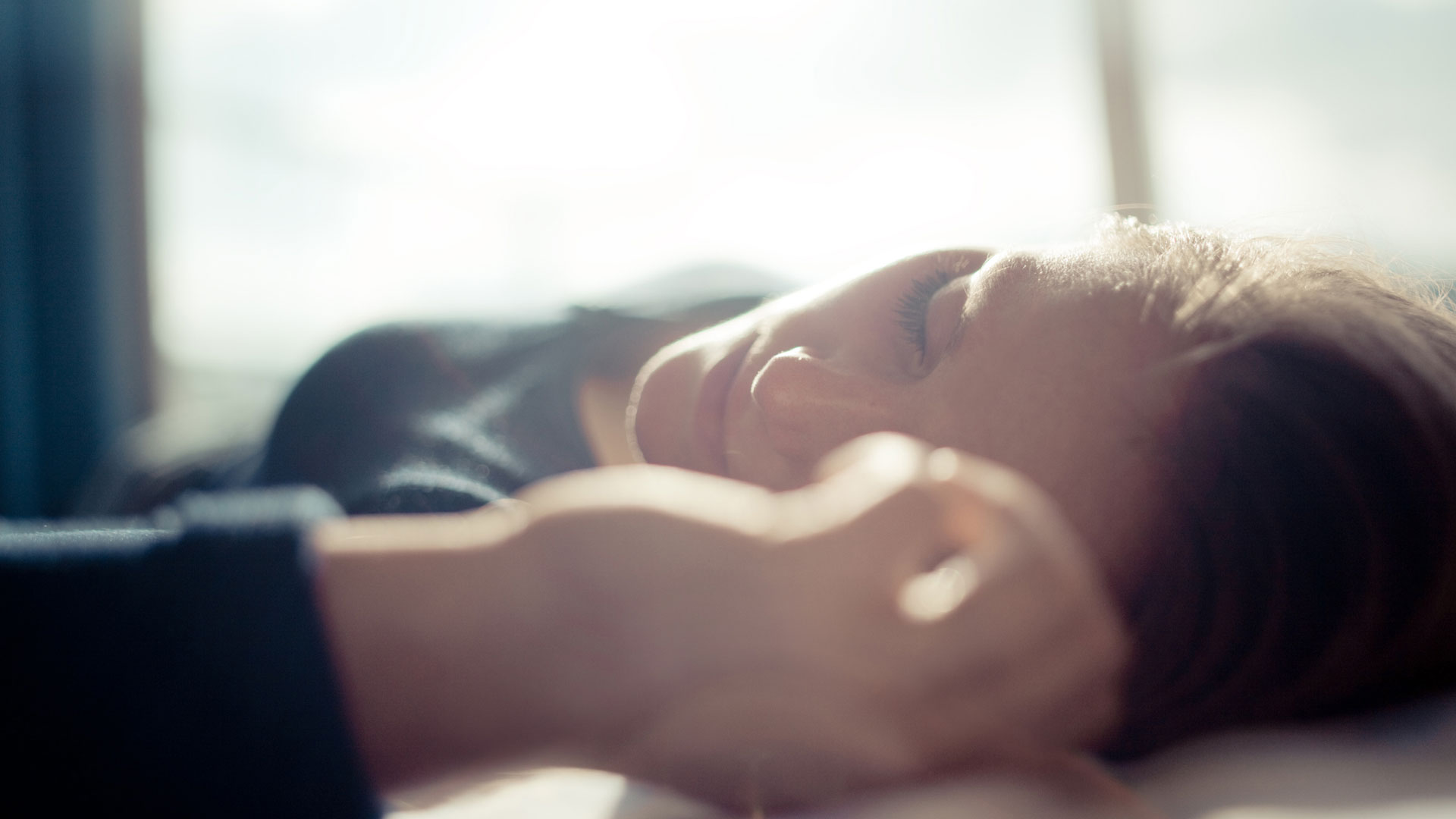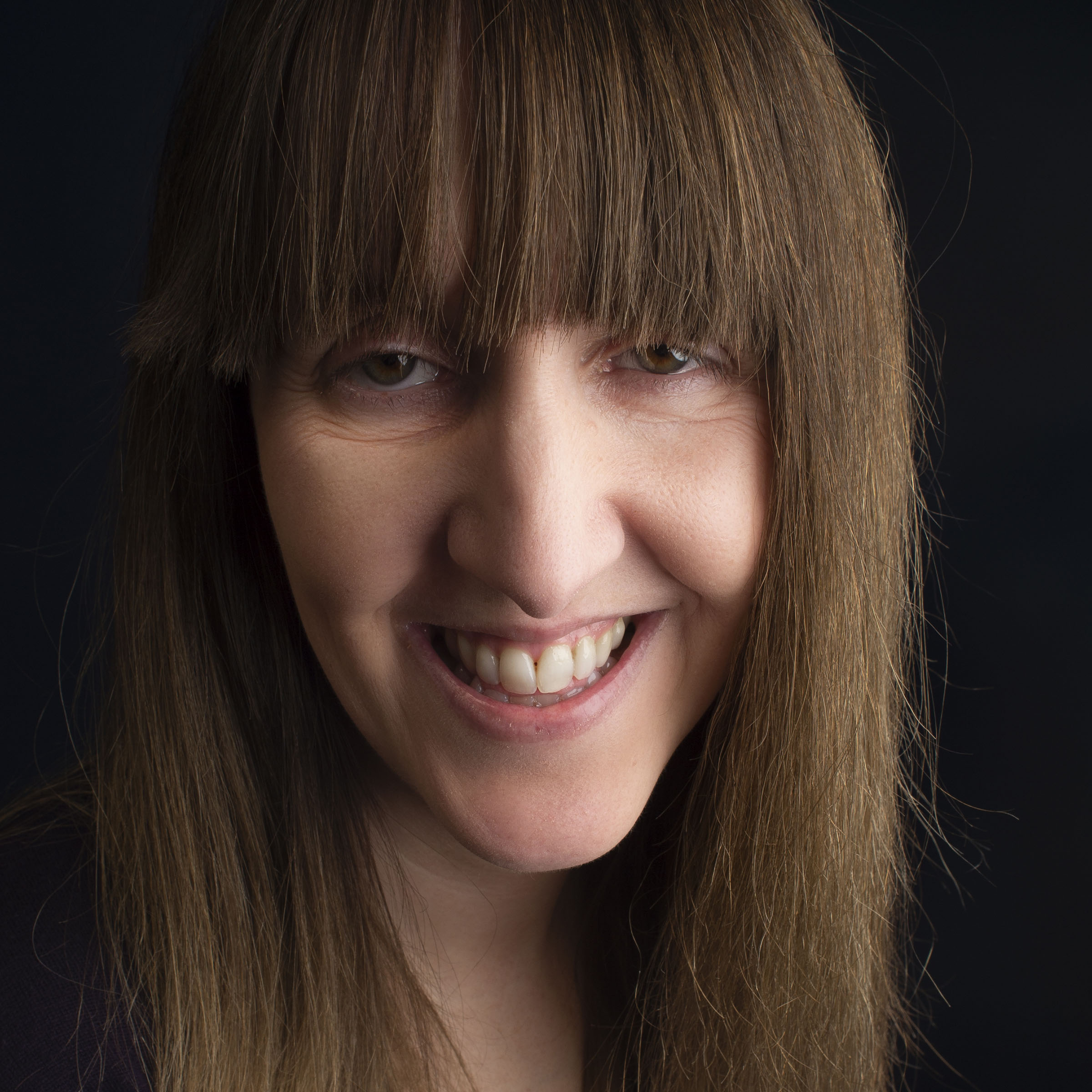What is sleep paralysis? A sleep expert explains all
We ask an expert about sleep paralysis and its effects on sufferers’ lives

Sleep paralysis is a temporary inability to move and/or speak that occurs directly after falling asleep or just as you are waking up. Sleep paralysis symptoms can be frightening but they are completely harmless. It happens when you can’t move your muscles as you are falling asleep or waking up due to a brief loss of muscle control known as atonia.
The brain is therefore active while you are still in sleep mode. Sleep paralysis occurs while you’re in REM (rapid eye movement) sleep. Standard REM sleep includes vivid dreaming along with atonia, which helps to prevent us from physically acting out our dreams. Atonia ends when we wake up, so we’re never conscious that we can’t move. But for those with sleep paralysis both REM sleep and wakefulness are being blended. So, the atonia and the mental imagery of REM sleep persist even as we’re falling asleep or waking up. This can lead to sleep paralysis hallucinations, amongst other symptoms.
We’ll look at sleep paralysis in more detail through this guide, but you can help yourself to get a good night’s sleep by choosing the best mattresses and best pillows for a better bedroom experience.
What does sleep paralysis feel like?

Studies show that around 75% of people suffer from sleep paralysis hallucinations. These hallucinations feel very different to regular dreams and, as with atonia, can occur when falling asleep (known as hypnagogic hallucinations) or waking up (hypnopompic hallucinations). There are different types of sleep hallucinations, falling into three main categories:
- Incubus / Chest pressure hallucinations – This type of hallucination gives sufferers a sensation of being suffocated.
- Intruder hallucinations – Sufferers perceive that there’s a dangerous person or presence in the room. These hallucinations will often occur in tandem with incubus hallucinations.
- Vestibular-Motor (V-M) hallucinations – V-M hallucinations can include feelings of movement or out of body sensations.
During sleep paralysis, sufferers may feel:
- Awake but unable to move, speak or open their eyes.
- As if someone is in the room with them.
- As if they are being pushed down.
- Frightened or scared.
What causes sleep paralysis?
The exact cause of sleep paralysis is unknown, but it has been linked to multiple factors. Some studies have hypothesized that it’s linked to a functional disturbance of the parietal cortex, while others have suggested it’s tied to insomnia or excessive daytime sleepiness. We discuss whether daytime napping can help sleep in this guide. Shift workers and those suffering from jet lag can also be at risk, due to a disruption to their circadian rhythms.
Higher rates of sleep paralysis have also been reported by those suffering from obstructive sleep apnea, characterized by repeated lapses in breathing and narcolepsy, a condition that causes sufferers to suddenly fall asleep. Exploding head syndrome has also been linked to sleep paralysis, particularly as it occurs during REM sleep.
Sign up for breaking news, reviews, opinion, top tech deals, and more.
Some mental health conditions have also shown a connection to sleep paralysis, with one of the strongest associations being in people suffering from post-traumatic stress disorder (PTSD). Generalized anxiety disorders and panic disorders can also make people more prone to sleep paralysis and some studies have also found that those who daydream or show traits of disassociation may also be at higher risk. And although there’s a higher risk in people with a family history of sleep paralysis, no specific genetic basis has yet been identified.

“Sleep paralysis predominantly affects young adults, and females experience sleep paralysis slightly more than males, but anyone can experience an episode”, explains sleep expert Dr Chester Wu. “It may be triggered by stress and occur alongside psychiatric disorders such as panic disorder, generalized anxiety disorder, and social anxiety. It can also be triggered by a lack of sleep, disrupted sleep patterns — such as from jet lag or shift work — or by other sleep disturbances. Sleeping on your back increases the likelihood of experiencing sleep paralysis. One study found that more back sleepers reported episodes of sleep paralysis than all other positions combined.”
How to avoid sleep paralysis
Dr Wu suggests these tips to help avoid sleep paralysis:
- Get enough sleep: Sleep deprivation is a common cause of sleep paralysis, so it's important to make sure you are getting enough sleep each night.
- Maintain a regular sleep schedule: Going to bed and waking up at the same time every day can help regulate your sleep and reduce the likelihood of experiencing sleep paralysis.
- Manage stress: Stress can contribute to sleep paralysis, so finding ways to manage stress, such as through relaxation techniques or therapy, can be helpful.
- Avoid sleeping on your back: Sleeping on your back increases the likelihood of experiencing sleep paralysis. Sleeping on your side may help prevent it.
- Deal with underlying causes: Treatment may also include addressing the underlying issue if sleep paralysis is being triggered by another health condition. If your sleep paralysis is happening frequently, or seriously impacting your quality of life, speak with a medical professional or sleep specialist.
In addition to Dr Wu’s suggestions, we would also recommend creating a bedroom routine for better sleep. Make sure your sleeping space is comfortable, quiet, and dark and remove electronic devices at least an hour before bedtime. Reducing alcohol and caffeine intake will also help you sleep better, as well as reducing the risk of a sleep paralysis episode. Specific forms of cognitive behavior therapy (CBT) are being developed for sleep paralysis, but research has not yet been undertaken to evaluate its effectiveness.
How do you break out of sleep paralysis?
“Although sleep paralysis hasn’t been well studied and there are no proven therapies, some techniques may help”, says Dr Wu. “One approach is to try to move a small muscle, such as a finger or toe. This can help signal the body to fully wake up and break out of the paralysis. Another approach is to focus on your breathing and try to take slow, deep breaths.”
Is sleep paralysis dangerous?
Sleep paralysis isn’t considered dangerous in itself and is classified as a benign condition that doesn’t generally happen often enough to cause issues. However, it can cause emotional distress, as Dr Wu explains. “Although sleep paralysis is not inherently dangerous and does not cause any harm to the body, it can cause significant distress and anxiety, even after the episode has ended. However, individuals may worry about experiencing it again, leading to disrupted sleep and an increased likelihood of sleep paralysis occurring again, creating a vicious cycle.”
It's estimated that around 10% of people have more recurrent episodes of sleep paralysis, which can lead to negative thoughts around sleep and bedtime. In some cases, this can lead to sufferers trying to avoid sleep and ending up with sleep deprivation. So, it’s important to try following Dr Wu’s steps to help improve the likelihood of avoiding a sleep paralysis incident altogether.

Dr Chester Wu is double board certified in Psychiatry and Sleep Medicine. In addition to his work as Rise Science’s Medical Reviewer, Dr. Wu provides sleep medicine services, medication management, and psychotherapy to adults at his private sleep medicine and psychiatry practice in Houston.

Jo Plumridge is a freelance writer and photographer with over 20 years of experience writing for a variety of magazines, books and websites. She writes, perhaps unsurprisingly, about photography but also extensively on all things sleep and interior design related, alongside home and tech product reviews. She’s lived in the middle of a nature reserve in Botswana and written a guidebook to New Zealand, but now spends a lot of time trying to photograph the cats she and her husband foster for a local charity - without a doubt the most challenging subjects on earth!